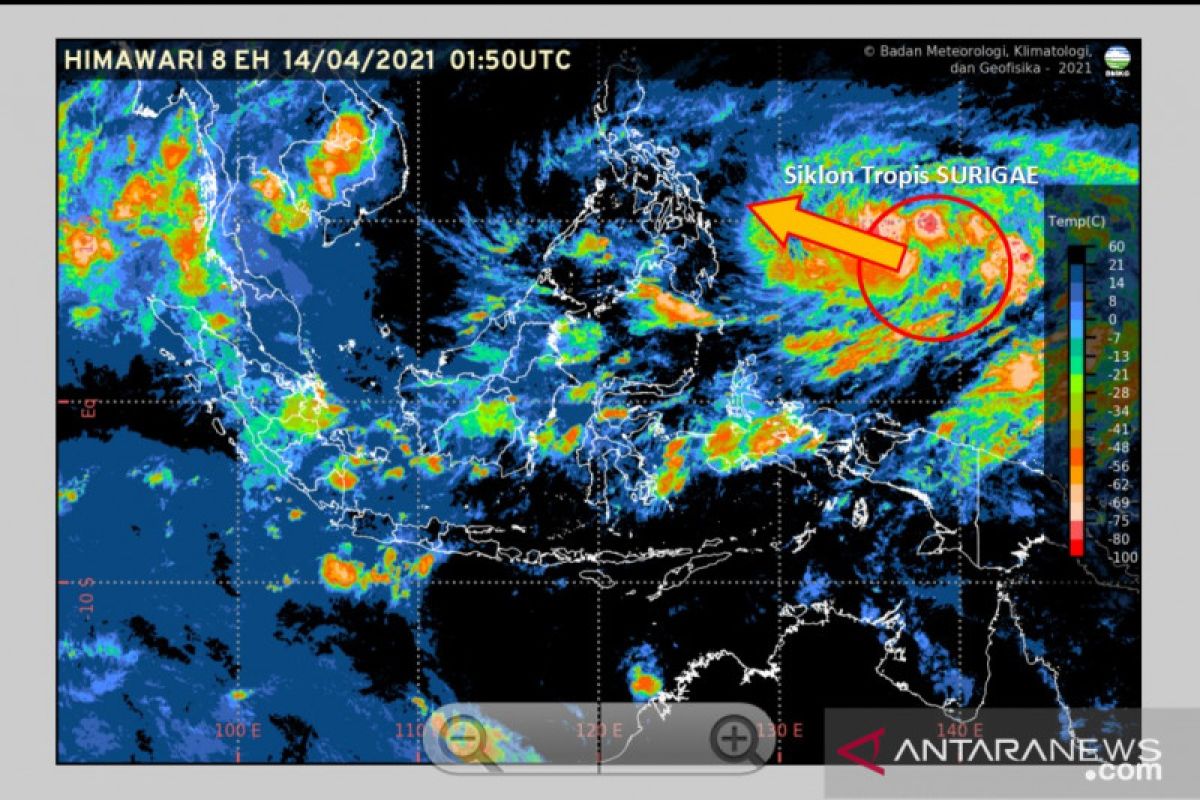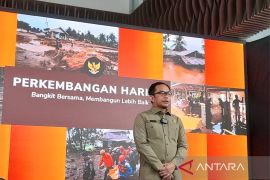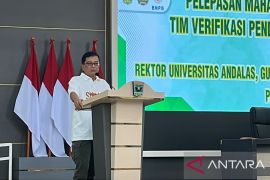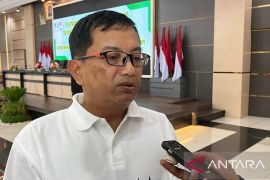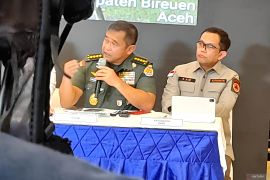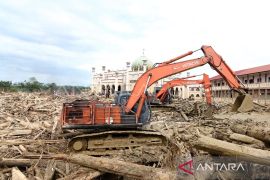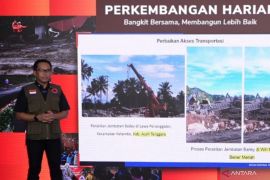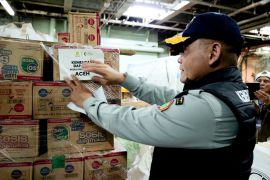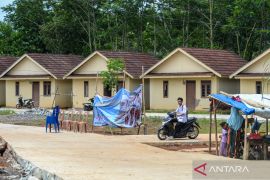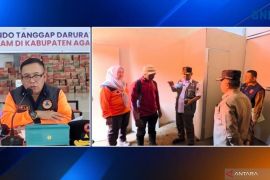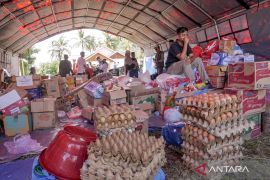The Surigae Cyclone currently making landfall in the waters of the Pacific Ocean, north of West Papua, will increase in intensity and move, heading northwest in the next 24 hours, the agency stated while quoting results of an analysis by the Meteorology, Climatology and Geophysics Agency (BMKG) on Saturday.
The cyclone has the potential to trigger heavy rains accompanied by lightning and strong winds in West Kalimantan, Central Kalimantan, North Kalimantan, East Kalimantan, North Sulawesi, Gorontalo, Central Sulawesi, North Maluku, and West Papua.
In addition, Surigae can cause waves reaching as high as 1.25 to 2.5 meters in the Sulawesi Sea, Sangihe Islands Waters, Sitaro Islands Waters, Bitung-Likupang Waters, Maluku Sea, South North Sulawesi Waters, Halmahera Sea, and Biak Waters to Jayapura.
Related news: BMKG forecasts Surigae Cyclone's effect on weather in Indonesia
The cyclone is also forecast to cause sea waves reaching heights of 2.5 to four meters in the waters of Talaud Islands and waters of northern Halmahera and trigger sea waves as high as four to six meters in the northern Pacific Ocean of Halmahera to West Papua.
According to the BMKG projection until Saturday (April 17) at 7 p.m. Western Indonesian Standard Time (WIB), Cyclone Surigae is expected to make landfall in the waters of the Pacific Ocean and is moving towards the north of North Maluku, about 1,040 kilometers north northeast of Tahuna.
The tropical cyclone is estimated to move at a speed of 10 knots, or 19 kilometers per hour, with a power of 95 knots or 185 kilometers per hour, and pressure of 935 hPa.
The BNPB has urged authorities in districts and cities in the nine province that can likely face the impact of cyclones to improve preparedness, including readying contingency plans and implementing Standard Operating Procedures (SOP) for emergency handling by applying the COVID-19 health protocols.
The local governments are also urged to prepare supporting facilities and infrastructure for handling disaster impacts, convey disaster mitigation information to residents, and allocate funds for handling emergency conditions. Related news: PGI chairman visits Seroja-hit village in East Nusa Tenggara
Translator: Martha HS, Fardah
Editor: Rahmad Nasution
Copyright © ANTARA 2021
